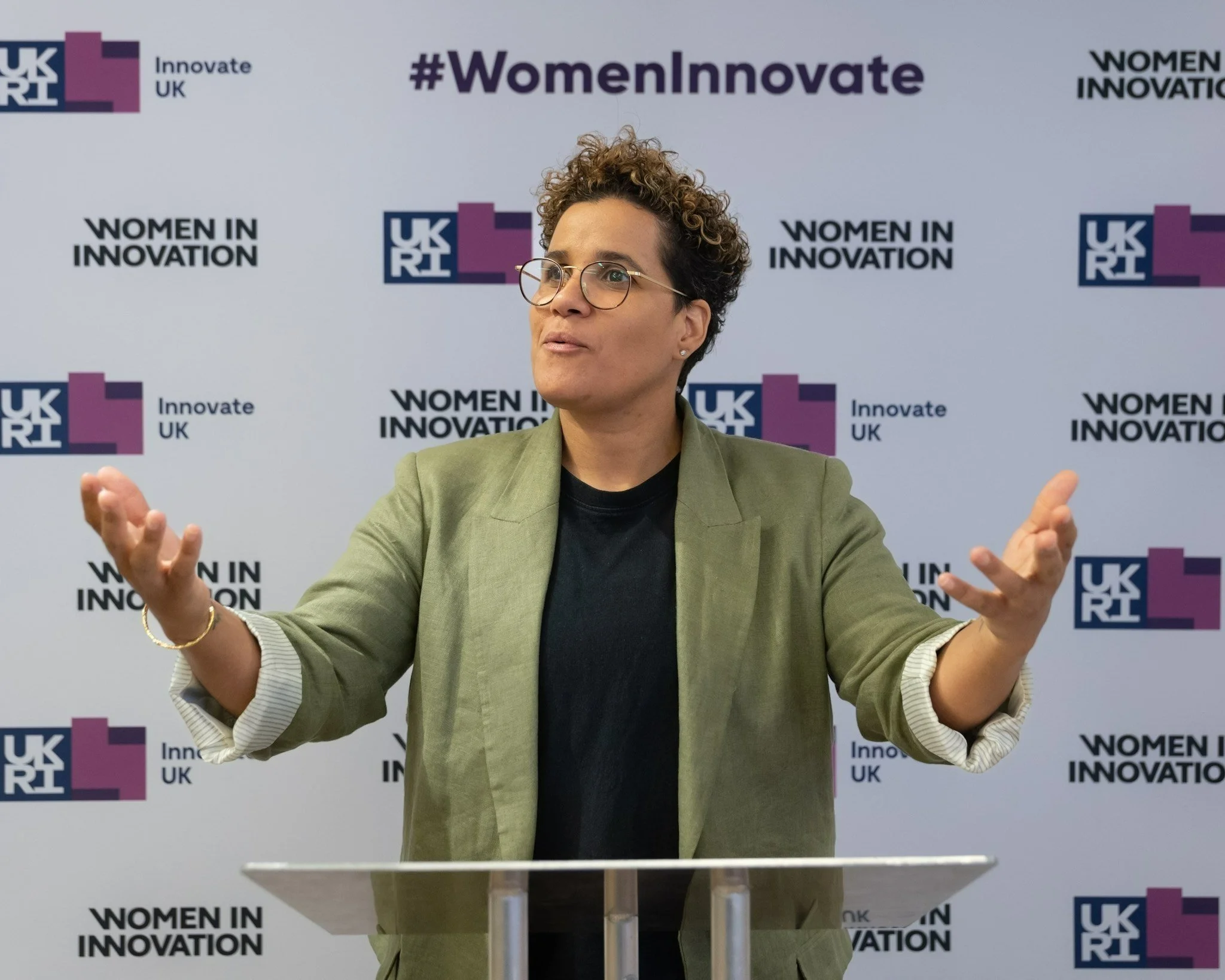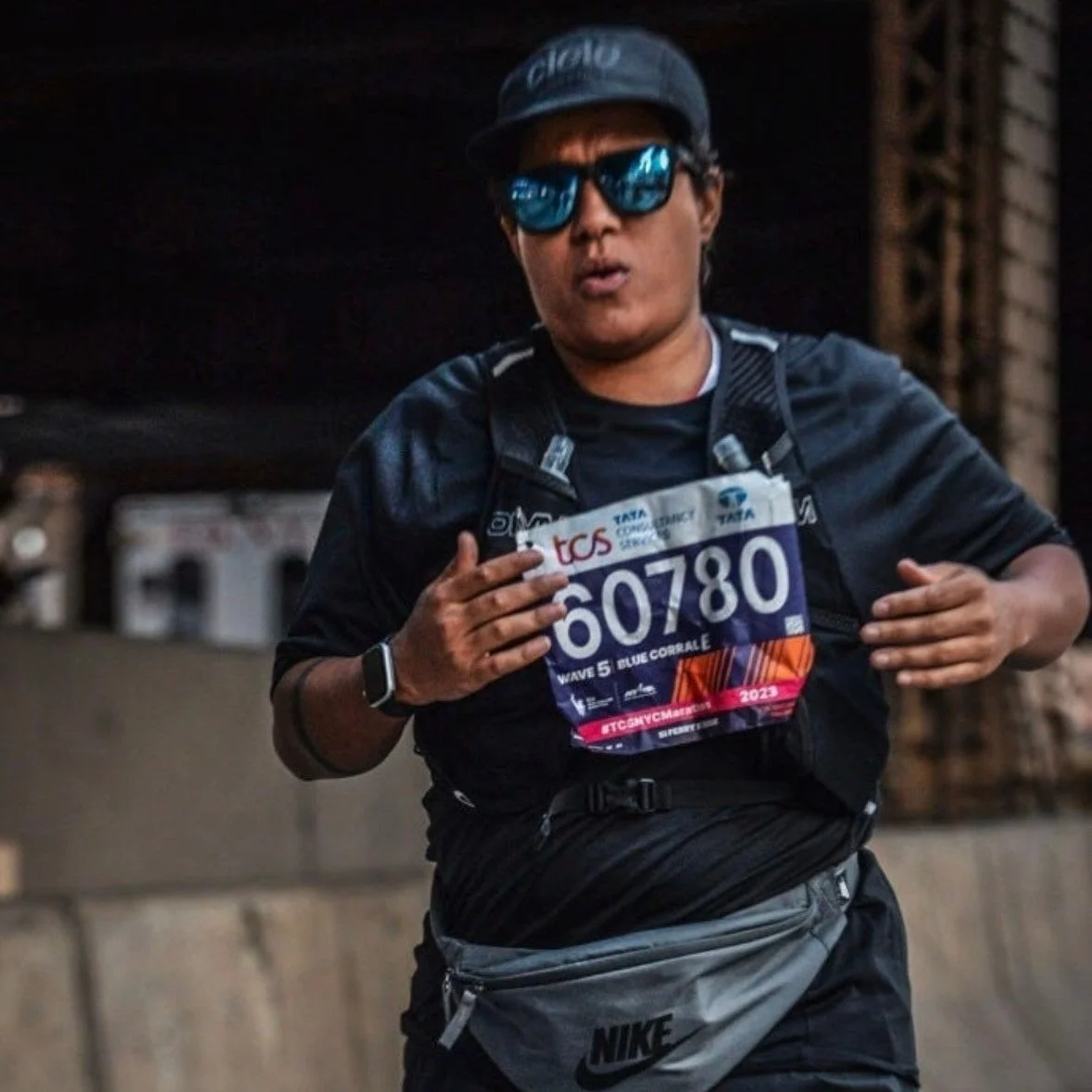Legacy, making it easier for those who come after us
Emma spent several years working for the London Metropolitan Police in Brixton, South London, before starting to work in the field of equity, diversity and inclusion (EDI). In her sessions for Be The Riot, she focuses on listening and building meaningful cultural change.
How did you get into EDI?
It’s a big question, but over the years, I’ve realised that my journey connects with my policing career. I think it started before policing, actually, in terms of what oppression I saw and the stories that were coming from significant moments in our country, like the murder of Stephen Lawrence. I grew up following the Lawrence family’s relentless fight for justice and saw how they were met with injustice at every single turn.
When I joined the Metropolitan Police, in my mid-20s, I was conflicted because of the Macpherson report, which said that the Met were institutionally racist. Justice and fairness sit at the core of who I am, but I thought I could go in and make it better. I thought whatever impact I make, no matter how big or small, it will make a difference.
I think I was really naive in my 20s, but when I look back, I see how it all connects because I always policed with fairness. It was about being conscious of the nuances between justice and injustice and who you were dealing with and who you were speaking to, and my approach now is the same.
“It’s about building trust, being in community, listening to understand different voices, being empathic, being compassionate”
What have you learnt from working in this space?
One thing I’ve learnt is that it’s so important for organisations to find and demonstrate their own best practices: there’s a misguided notion that you can take what works in one setting and replicate it in another, for example, healthcare and apply it to financial services. They’re two completely different environments but I’ve seen people who think they can do that. So when I speak to senior leaders, the first thing I’m curious to know is, what context are you operating in? What is the data telling you about your own organisation and your own people? It’s not a one-size-fits-all.
What’s different about Be The Riot?
The first thing anyone notices is the name, Be The Riot. It stands out. It’s a confident name. It’s a confronting name. When I first heard it, I loved it, but I wondered how some organisations would react. When you go deeper, though, it’s about us reclaiming the word ‘riot’ and using it to symbolise societal change. It doesn’t mean violence or crime; it means being provocative and disruptive in a strategic, peaceful way. In our workshops, we say, ‘Societal change never came without a riot’. It’s about pushing a narrative that disrupts box-ticking and fosters real change.
“A good facilitator won't make assumptions or drive their own agenda in those spaces”
What’s your personal facilitation style?
I think it’s changed quite drastically over the years and become much more exploratory. A couple of years ago I did a programme to became a certified culture facilitator, and the essence of it was that ground rules and pre-planned agendas can often get in the way of getting to a root cause. Sometimes we need those things, and it’s about a balance. But as a facilitator, you've got to go in with a genuine openness and curiosity. You've got to listen to understand. You've got to make those connections between what people are saying, and then make the next connection that opens up space then for really complex discussions. A good facilitator won't make assumptions or drive their own agenda in those spaces, and when you find yourself doing that, you have to catch yourself, and that's what I've been trying to do over the last few years in my sessions. It's really, hard, and I don't think I've nailed it. I'm still learning, but I'm giving it a good go.
How do you look after your wellbeing when the work is challenging?
Doing this work, I have a really stable and supportive network of people that also work in EDI. I call them my echo chambers. Constantly immersing yourself in echo chambers isn’t good but in this context, it grounds me. Having my echo chambers around me when it gets tough is the difference between getting through something and not getting through it. I’ve had days where I’ve thought, can I keep doing this as a career? Can I continue going into organisations, having the same conversations time and time again? But my peers help me, and that’s what’s allowed me to continue.
Another thing that’s key for me is establishing routines for myself. Running four days a week is mentally incredible for me. It clears my mind, boosts my confidence, gives me a sense of freedom and clarity. That allows me to step into difficult conversations with leaders and navigate them well.
“Running four days a week is mentally incredible for me. It clears my mind, boosts my confidence, gives me a sense of freedom and clarity“
What trends are you seeing in the EDI space?
What’s happening now in the US is a big concern. The hostility towards EDI and social justice work, with business leaders taking a complete U-turn and large corporations letting EDI teams go and cancelling initiatives, is having a global impact and communities that are already marginalised – trans individuals, disabled people, Black and Brown communities – are feeling the full force of it.
“We’ve spent decades fighting for our hard-won rights, not just in law but in the way we treat each other in society. Now, it’s being torn down without a second thought. It’s easier to destroy than to create. But the work will continue”
How do you stay motivated?
Legacy is important. I don’t mean that in a self-righteous way, it’s not about being remembered; it’s about leaving something good behind so that those who come after us have it a little easier than we did. Personally, as a mixed-race, Black, gay woman, I know exactly whose shoulders I’m standing on. These incredible titans risked so much so people like me could feel free. The work is tiring, but it’s not about me. It’s about the future we’re building, and I’ll keep doing it.
How can we help?
Explore how we can help your organisation through our workshops and strategic consultations.



